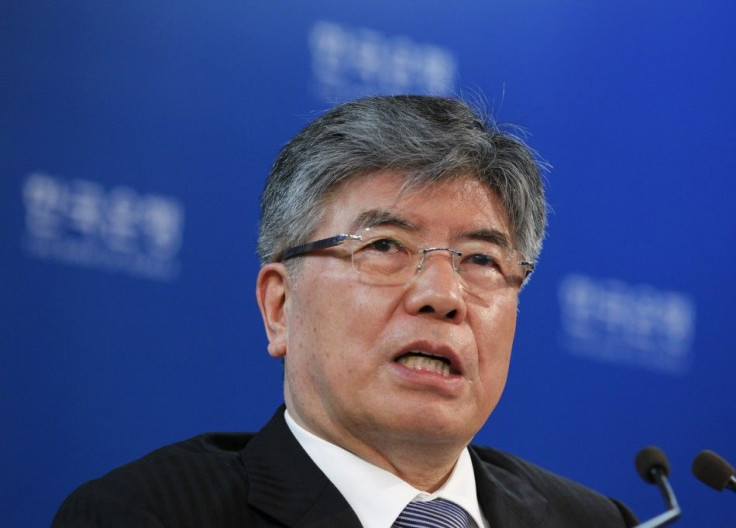Bank of Korea buys gold, first time since '97-'98

South Korea's central bank bought 25 tonnes of gold over the past two months in its first purchase in more than a decade, saying the time was ripe to boost its gold holding, but markets barely moved on the news.
A brittle global economic recovery and precarious debt situations in the United States and Europe have boosted the safe-haven appeal of gold, lifting bullion to a series of record highs in July, as investors and central banks chased prices higher.
The central bank of Asia's fourth-largest economy said that, with prices hovering near historic highs, gold looked less lucrative as an investment but it was the right time to buy gold because its foreign reserves had risen above $300 billion.
News of the Bank of Korea's purchase barely moved spot gold which was steady at $1,617.89 an ounce by 2236 GMT, but analysts said it was supportive of prices. Gold hit a record high of $1,632.30 on Friday.
"Any news about central banks buying gold reassures consumers and other major players who are already looking at gold as an investment," said Jeffrey Pritchard, analyst at California-based commodities futures and options brokerage Altavest Worldwide Trading.
The Bank of Korea said in a statement its latest gold purchase was valued at $1.24 billion. It did not say whether it had bought gold bullion or funds.
At 25 tonnes of gold, equivalent to 803,769 ounces, the average price paid comes to $1,543 an ounce, based on Reuters calculations.
A Bank of Korea official said it was the bank's first gold purchase since at least the 1997-1998 Asian financial crisis.
"South Korea's central bank seems a little late to the party, but gold investors should continue to expect price support as central bankers around the world are underinvested in the yellow stuff," said Sean McGillivray, head of asset allocation at Great Pacific Wealth Management.
"Government austerity and a return to normalized monetary policy will be the game changer for the gold bull market. Investors and central bankers are looking to protect purchasing power, but diversifying into the currency of last resort, gold."
The latest purchase lifted the central bank's gold holding to 39.4 tonnes. The BoK said the increased gold holding would put it in 45th position in the World Gold Council's list of central banks holding gold, up from 56th previously.
The United States has the biggest gold holding in its foreign reserves, at 8,133.5 tonnes, with China at No. 6 with 1,054.1 tonnes.
The BoK declined to disclose the purchase price but said it had entrusted all of its gold holding to the Bank of England for possible use in gold lending and other related transactions in future.
CONDITIONS RIPE FOR GOLD PURCHASE
During the 1997-98 Asian financial crisis, patriotic Koreans collected the precious metal as part of a campaign to boost the country's foreign reserves, when it was on the verge of a sovereign default.
"The country had too small an amount of foreign reserves to diversify into gold before 2004 and was not able to buy gold between 2005 and 2007 due to concerns about the central bank's annual losses," the Bank of Korea said.
"Now that our total reserves topped $300 billion and foreign exchange markets stabilised, we judged that conditions were ripe for us to increase gold holding," it said.
The Bank of Korea would not say whether it plans to buy more gold, adding that any comments could have an impact on global markets.
Valued in U.S. dollars, the new purchase increased its gold holding to $1.32 billion from a mere $0.08 billion previously, the bank said. Still, this represents only 0.4 percent of the country's total foreign reserves.
Including the gold, South Korea's foreign reserves rose by $6.55 billion in July to $311.03 billion, equivalent to about 30 percent of the country's annual gross domestic product of just more than $1 trillion in 2010.
Of the total reserves, 88.5 percent were invested in securities, followed by 9.2 percent deposited at financial institutions and 1.2 percent held as special drawing rights, the Bank of Korea said.
South Korean foreign reserves ranked seventh in the world as of the end of June, it added.
© Copyright Thomson Reuters 2024. All rights reserved.





















